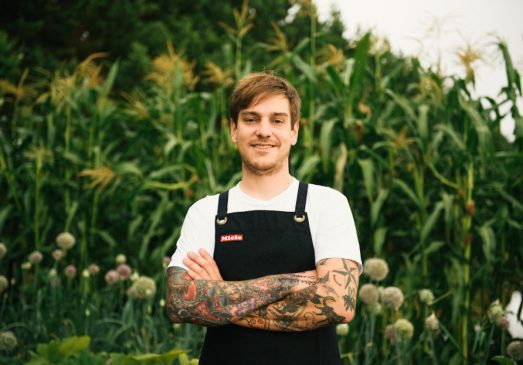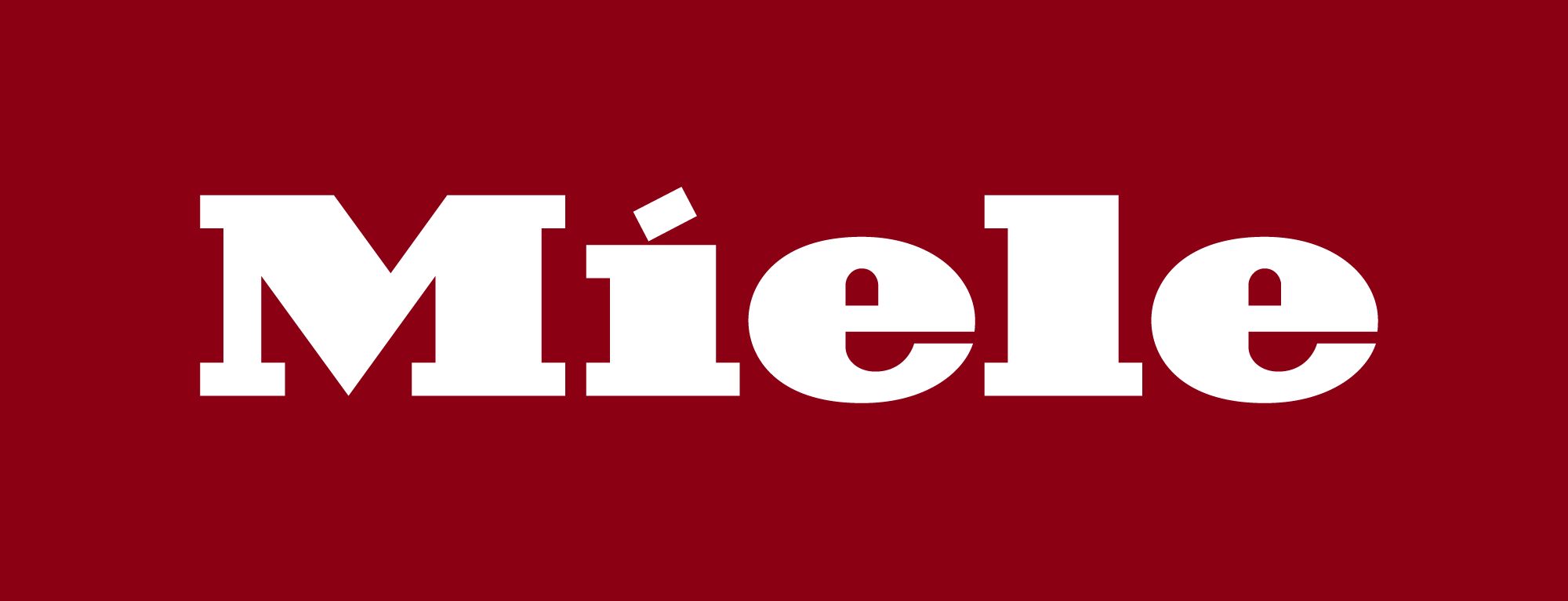A guide to sustainable living from our partners
At Miele, the principles of sustainability sit deep at our core as a company. Aligning with our brand value and promise ‘Immer Besser, Forever Better’, our appliances have always been built to last and truly stand the test of time.
We understand that sustainability is incredibly important in today’s world and that environmentally focussed practices have become a greater priority in the home in recent years. As such, we now have specific sustainable strategies which not only see our products conceived, manufactured and delivered in increasingly sustainable ways, but also mean we purposefully seek out those who share our ethos and values to partner and align with.
Miele partners, Matt Stone (pictured below) and eco-champion Joost Bakker (pictured above), are both renowned for their sustainable, low-waste approach to cooking and living and have been working together since the 2009 Greenhouse Perth pop up. We are proud to have supported a number of Joost’s zero-waste initiatives including the Greenhouse projects since the first was constructed in Melbourne’s Federation Square in 2008, his zero-waste café Silo, as well as Australia’s first bushfire resistant straw bale houses that he designed in Daylesford and Kinglake.
 Matt Stone
Matt Stone
This month, Miele for Life sat down with Matt and Joost to deep dive into their sustainable living best practices and why they continue to choose Miele products.
Miele for Life: Where does your passion for sustainability stem from and why do you think it is so important?
Joost: I’ve always believed that it is truly possible for us to coexist and live in harmony with nature, rehabilitate what has been destroyed and immensely reduce the land required for food production and materials. We’re seeing a shift in behaviours already as we collectively become more in tune to the impact every single action of ours has on the earth, but there is a long way to go.
To really make a positive impact, changing the way we consume food by adopting zero-waste systems will need to become mainstream. By moving food production to where we live, re-wilding and utilising what we call waste, we can have an enormous impact on the environment as well as increase our connection to nature.
Matt: I’ve been passionate about promoting a sustainable food system for years and years now. Just over a decade ago, I started collaborating with my good friend Joost Bakker, on a zero-waste restaurant venture in Melbourne that was entirely made from recycled or recyclable materials. We have since worked together on numerous projects, such as Greenhouse, Silo (later renamed Brothl), with the fantastic support of Miele.
In 2015, I moved to Oakridge, a winery in the heart of the Yarra Valley in Victoria, where I ran a zero-waste kitchen. We grew our own food, placed a huge emphasis on seasonal and local produce and ultimately the goal was to continuously develop deeper connections with the land upon which we live.
Miele for Life: What do you think the future relationship of the building and hospitality industries and sustainability look like?
Joost: I think that close collaborations with local producers are incredibly important to securing a sustainable future for the hospitality and building industries. Working with native producers and their produce will dictate menus and inspire new technologies that will create exciting zero-waste systems. As more people become passionate about this way of living, the food we will be idolising, and valuing will be very different in as little as five years. For example, while organic produce is of course important, the integrity and benefits of our food go way beyond that. Mobile technology has already made great strides in this arena, but advancements mean that soon we will be able to measure the nutrient density and biological levels of fresh foods directly, enabling us to engage and reward producers that grow foods in healthy, microbe rich soils.
Almost all food grown today is severely lacking in vital nutrients, simply because over time, through the use of unsustainable agricultural systems, we have sadly mined them from our soils. This is why I am so passionate about making the most of our food. Our ‘waste’ is incredibly nutrient and biologically rich and through these closed-loop, zero-waste systems and systems we can improve both our relationship with the earth and our health.
Miele for Life: Are there any appliances you use in your house that help to minimise the impact on the environment?
Joost: Of course, having an energy efficient dishwasher is a no brainer. For me, it’s all about investing in quality and given my mum has owned a Miele washing machine longer than I’ve been alive and my uncle in the Netherlands repairing Miele appliances, he drilled into us that it was the only brand worth buying. My Miele dishwasher has a range of features that means it operates in the most sustainable way possible, the EcoFeedback function tells me how much water and electricity I’m using with each and every load, giving me full transparency over my energy consumption.
As our home is solar powered, we ensure we use our Miele dishwasher and washing machine when the sun is shining bright. True solar powered washing!
Matt: For me appliances are definitely important when considering our impacts on the environment but something simple I’ve learnt over time is to compost. It’s vital to reduce food wastage not only in a restaurant but in the home and the best way to give back to soils and gardens instead of trapping it all in landfill. At Oakridge we did exactly that – our food waste was composted and used to feed the restaurant garden. I also have a closed-loop organic composter at home!
Miele for Life: Finally, what are some tips you can share for individuals wanting to make simple, sustainable changes in their own homes?
Joost: First and foremost, grow your own food. It can be anything. Start with simple things like rocket or silver beet. Once you start, you will find that the sense of accomplishment of being able to grow, cultivate (and of course, eat) your own produce becomes addictive and it will change your life.
Get connected with the outside world, its seasons and weather changes and buy seasonal product. Foraging is another great way to get connected with the earth. Going for forest walks, foraging for chestnuts and mushrooms in Autumn, berries in summer, kelp and other seaweeds when walking on a beach and then coming home and using it as a base for beautiful broth. It’s one of my favourite things to do and #breatheyourbiome is my second favourite hashtag after #zerowaste! They also make you feel great – science has now proved that walks in these outdoor environments and breathing in the air changes the microflora within us and increases serotonin levels (although, anyone who does, didn’t need scientists to tell us this!).
Make your recipes from scratch where possible, whatever it may be. I recommend buying an oat roller and start rolling oats fresh every morning. This will mean you start your day with food that is alive, microbe and nutrient rich and loaded with fibre. Otherwise, buying organic or biodynamic groats in bulk will also save you money and dramatically improve your health, I call it a win, win.
Why not also build or buy a worm farm – organic waste does not belong in our rubbish and the resulting worm castings are super food for plants! All these things will have a dramatic effect on your wellbeing and generate a lot less waste.
Finally, it goes without saying, really consider the appliances you are using in the home and invest in ones that are going to last and repair well. Alongside my family, many farmers and flower grower family’s in and around Monbulk are adamant that only Miele washing machines can get the red dirt out! You never ever see a Miele appliance when it’s hard rubbish. It’s because they are built to last!
Matt: Making sustainability a priority in your home doesn’t need to be complex. It makes sense that the first thing to consider is the appliances within your home, how you use them and the energy they consume. I have high sustainability expectations of all appliances I use which is why I appreciate Miele’s range and philosophy. Miele’s wide range of energy efficient features across all of its appliances in the laundry and kitchen mean that sustainability is considered throughout the whole cycle process, with everything from the technological features to the materials used truly limiting how much energy is being consumed or lost while in use.
One of the other easiest steps you can take is simply growing your own herbs, even if it’s just one pot on the windowsill, it’s a great start to having tastier herbs and no plastic packaging.
Make sure you’re considering all the parts of your food and being critical of what you’re putting in the bin – there will often be another use for it than simply letting it go to waste. Save your bones from your roasted chook for a stock or broth, or consider recipes that make use of leftover ingredients, like soups or stews (perfect for winter!). Buying in bulk also has a positive impact on the environment by reducing your waste as well as prompting you to be more mindful of your consumption in general. Not only that, but it’s often cheaper to buy whole, seasonal foods in bulk.
Another easy thing you can change straight away is to stop using single use plastics and other one-use materials in the kitchen. Invest in some good storage containers for your food and some bees wax wraps. Not only are they better for the environment, they look great in your pantry and the materials they are made from are much less harmful on our bodies. Similarly give up the takeaway coffee cups – no cup, no coffee, that’s our saying.
Finally, for cleaning – the easiest environmentally friendly switch you can make is to using micro fibre cloths for cleaning surfaces rather than disposable ones and take the time to consider the ingredients in any of your cleaning products.
For more information on Miele’s sustainability efforts click on your country below:
To try one of Matt Stone’s recipes for yourself click on your country below:
